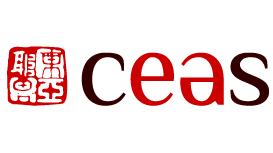Yale Council on East Asian Studies (CEAS)
MacMillan Center for International and Area Studies, Yale University

The formal study of East Asia at Yale began in 1878 with the appointment of Samuel Wells Williams as Professor of Chinese Language and Literature to teach courses in Chinese civilization. This curriculum has since evolved and expanded to a comprehensive and renowned program of East Asian Studies that continues to this day. In 1906, Dr. Edward H. Hume established the Hsiang-ya Medical School and Hospital in Changsha under the auspices of Yale-in-China, inaugurating a program of teaching and exchange that is also still in existence. The distinguished Japanese scholar, Asakawa Kan’ichi , was appointed to the Yale History Department in 1907 and also served the Yale University Library as curator of the East Asian Collection until his retirement in 1948. The ideals he expressed in a letter in 1899 – “to introduce my country in a better light than before to the intellectual world, to bring close in understanding and sympathy the East and the West” – continue to guide those involved in the study of East Asia at Yale.
The Yale University Art Gallery acquired its first Asian art object in 1899 and the University’s strength in Asian art was further established with gifts from Mrs. William H. Moore, beginning in 1937, of Chinese bronzes, porcelains and paintings, as well as Japanese prints and Near and Far Eastern textiles. Three years later, the Asian art holdings were greatly enhanced with the donation of early Chinese ceramics by John Hadley Cox ‘35.
The East Asia Library is one of the major collections of East Asian materials in the United States as Yale has been collecting relevant materials for well over a century. In 1879, the first collection of notable gifts of Chinese books was presented to Yale by the Honorable Yung Wing, Yale B.A. 1854, the first Chinese subject to graduate from an American college. Earlier in 1873, the first collection of outstanding Japanese books were donated by O.C. Marsh, Yale Professor of Paleontology and a connoisseur of Asian artifacts. Other gifts followed, and more systematic acquisitions began with the efforts of Asakawa Kan’ichi, who was commissioned to acquire Japanese materials for Yale and the Library of Congress during his eighteen-month stay in Japan in 1906-1907. Asakawa oversaw acquisition of Western language materials relevant to East Asian Studies at Yale during his tenure as curator of the East Asian Collection.
During the 1940s, Yale pioneered new methods of teaching the Chinese and Japanese languages. Yale first taught Korean as a language in 1946 to a group of Protestant missionaries. Korean Studies at Yale was then made prominent in the 1960s by Professor Samuel Martin’s ground-breaking work in Korean language and linguistics. Contributions to the study of Japan were further enhanced by the 1961 appointment of John W. Hall as A. Whitney Griswold Professor of History. Since then, the University has invested heavily in building library collections on East Asia, providing graduate fellowships, and creating long-term faculty positions to establish East Asian Studies as a basic component of both the graduate and undergraduate curricula.
The Council on East Asian Studies (CEAS) was founded in 1961 and continues the long tradition of East Asian Studies at Yale. The first Chair of CEAS was Arthur F. Wright, Professor of Chinese History. The study of East Asia is an essential part of the existing structure of the University, with faculty teaching across social science and humanities departments in the Faculty of Arts and Sciences. The interdisciplinary nature of CEAS encourages collaborative linkages across fields and departments and contributes to diversity across the curriculum and in the classroom. National interest and University commitment have also contributed to expanded course offerings and rising student enrollments. Because of the ever-growing importance of the relations of the United States with East Asian nations, the study of East Asia at Yale will continue to provide its students with a rich, world-class education imbued with international vision. CEAS continues to work with the University on expanding the depth of East Asian Studies and remains committed to the further development of Korean Studies at Yale.
The work of CEAS has been generously supported by contributions and grants from the American Council of Learned Societies, the Chiang Ching-kuo Foundation for International Scholarly Exchange, the Ford Foundation, the Freeman Foundation, the Japan Foundation, the Henry Luce Foundation, the Andrew W. Mellon Foundation, the Korea Foundation, the Sumitomo Mitsui Banking Corporation, the Sun Hung Kai Properties-Kwoks’ Foundation Limited, and benefactors such as Cheng Yu-tung, Lee Shau-kee, Henry H. L. Fan, Charles K. Kao, Cissy Pao, Shinichiro Watari, Betty B. Hall, Seong-Yawng Park and Marguerite Clark Park, and various anonymous donors. Students in Yale College and in all graduate and professional schools can also obtain fellowships for language study programs in East Asia through generous funding provided to the University by the Richard U. Light Foundation.